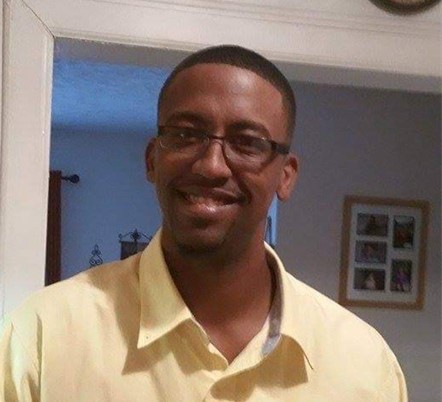Marecus Maupin, a 41-year-old armed security guard, husband, and father of four, is not just a kidney recipient; his journey to healing and recovery is exceptional. Living without any kidneys for five years sets his experience apart from others.
Marecus has a passion for competitive sports. However, a hard tackle during a friendly churchyard football game revealed a profound issue: inherited polycystic kidney disease (PKD). Despite his disappointment of being sidelined from certain sports, Marecus maintained a positive outlook. In high school, he engaged in track and joined the ROTC. He earned a degree in phlebotomy, started a family, and worked in various fields, including truck driving, construction, roofing, and industrial cleaning.

While outwardly healthy, Marecus endured excruciating episodes of pain, leading to the decision to remove both kidneys. A life dependent on dialysis came with its issues. A severe allergic reaction during one session led to cardiac arrest. The procedures for the devices related to dialysis left him with staples along the length of his arm and his entire torso. Dialysis was a temporary solution, Marecus needed a kidney transplant.
“I always try to look for God in the situation rather than looking at the situation. I always try to live life that way. It served me well doing so because when it comes to traumatic experiences many people tend to give up or focus on the negative and I really wanted to push the limits. I’m not going to let it stop me.”
His mother was a match, but it was not an option due to her age. After five years on the waitlist, his sister became his lifeline by donating to someone in need while ensuring Marecus received a compatible kidney from another donor through a Kidney Paired Donation program.
“What was given to me was an opportunity,” said Marecus. “My children have life because you’ve given them their father back. Not just physically but emotionally. My mood and energy are different. I look forward to waking up.”
Marecus encourages more people to consider living donation. He hopes to meet his donor. He is very thankful for the advancements in science, technology, and medicine that allowed him and countless others another chance at life. He also recognizes those who donated as a final selfless act of kindness and wants those families to know he sees them too.
“That honor walk,” he said. “I’ve watched so many. When we are waiting on an organ, we must remind ourselves and remember where it is coming from.”
- Read more Stories of Hope
- Register as a donor
